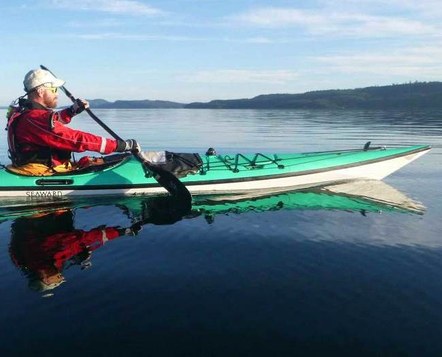Before your Trip: Preparation
Suggestions on how to prepare for an incident on your trip, just in case.
Leaders and trip participants have a role in ensuring that their trip is successful and safe. This includes trip preparations.
Here are some suggestions for preparing for a potential trip incident.
Write Down and Carry Specific Emergency Numbers
- 911 - Your best choice in an emergency. Dispatchers are trained to direct your call to the appropriate rescue agency.
- Land Manager - The appropriate agency number (Forest Service offices, National Park Dispatch Centers, County Sheriff, WTA Ranger Station Info).
- Marine Radio Channel 16 or 206-217-6001 - the US Coast Guard Puget Sound 24-hour Emergency Response Line.
- 206-521-6030 - The Mountaineers Emergency Line. If needed, the trained Emergency Line responder will contact each party member's designated contact (as shown on the member's profile), and handle any communications with rescue agencies.
Choose and Prepare an Emergency Contact
- Every trip participant should designate one person as their emergency contact whenever embarking into the outdoors. Usually this person is the one designated on each Mountaineer member’s profile.
This designated person needs to know where you’re going, who you’re going with, what vehicle you plan to drive, where you will park, your trip plan, when you expect to be back, and when to notify authorities if you haven’t returned. The designated person will check that you have returned safety and at the expected time.
- When going on a Mountaineers trip, give the Mountaineer emergency phone number to your emergency contact. Encourage your emergency contact to call this number if you have not returned by the “call if not back by” time. The Mountaineer person who answers this phone number has experience in dealing with over-due parties and will be able to answer any questions. This person also knows how best to contact Search and Rescue if the situation warrants
- When going on a private trip, all participants should provide trip starting location and destination, route information, and “call if not back by” time, to their emergency contacts. If possible, provide the phone number of a trusted and knowledgeable friend, to help emergency contacts decide what to do if not back when expected. 911 should only be called if you have enough information to enable the appropriate Search and Rescue organization to start a search in the right place.
Alert Contacts of the Possibility of Delays
- All participants should let their close family and friends know that sometimes trips run late. Infrequently, very late. Poor weather can slow a party, route finding can become an unexpected challenge, your party may stop to render assistance to another group in need of help, and rarely an incident occurs on your trip where someone is injured.
- Let close family/friends know that all trip participants carry the 10 Essentials and could spend the night in reasonable safety and comfort if it came to that. For example, it is not uncommon for alpine climbs or multi-day sea kayaks trips to return a day later than expected. This is especially true for the more remote trips.
- The trip leader should let all participants know the 1) expected return time and a 2) “call if not back by” time. The trip leader determines these times during trip planning. Participants should relay these times to their emergency contacts and family/friends. “Noon the next day” following the expected return time has traditionally been the “call if not back by” time for the typical Mountaineer climbing trip. Leaders may wish to adjust the times for other types of trips.
Bring Equipment for Unexpected Situations
- Each member on a Mountaineer trip should carry the 10 Essentials. This is the gear you would use in an unexpected situation. You might want to augment your gear if the trip may be a bit more of a challenge than normal. Think: wet or cold weather, considerable mileage, lots of elevation gain, more than the average technical climbing or paddling skills needed.
- The Trip Leader almost always carries additional equipment if the trip is a "high end" trip. Think: satellite messengers or beacons, extra gear in the event someone's pack is lost, extra first aid supplies.
- Your group should be able to stay overnight, and perhaps even assist another, less-prepared, group stay overnight.
Be Aware That Small Glitches Can Lead to Major Problems
While a major problem can develop "out of the blue", incidents often start as a series of smaller glitches adding up. Examples:
- Forgetting some gear that probably won't matter.
- Unforecasted weather trends.
- Unexpected terrain/sea conditions.
- A participant not quite 100% due to injury or illness
- Navigation challenges - "The map is wrong!"
If recognized early, the buildup of multiple glitches might be mitigated.
